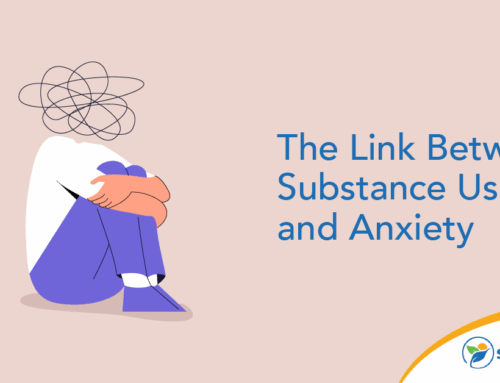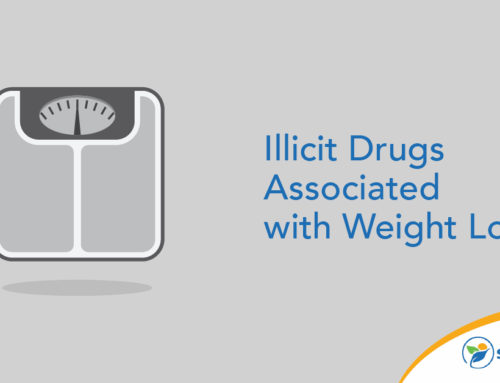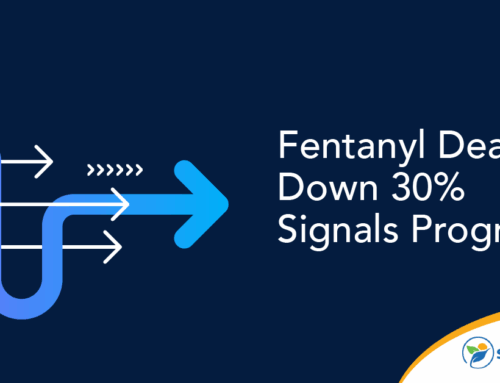Usage of Adderall and other stimulants in the United States has increased over the last few years, according to reviews of pharmacy dispensing rates. While these drugs can be beneficial for people with certain medical conditions, they pose risks, especially for those who use them in ways other than prescribed by a medical professional. Understanding the long-term effects of Adderall and other stimulants can allow anyone who takes the drug to make an informed decision about continuing use.
What Is Adderall?
Adderall is a prescription medication from a class of drugs known as stimulants. These drugs increase levels of two brain chemical messengers: dopamine and norepinephrine. Dopamine helps control the brain’s reward center, producing feelings of pleasure in response to certain stimuli. It also plays a role in learning, memory, mood, sleep and the functioning of the kidneys and the cardiovascular and nervous systems. Norepinephrine, produced by the adrenal glands, aids metabolism and increases heart rate and blood pressure for the fight-or-flight response.
The generic version of Adderall is dextroamphetamine/amphetamine. Its name refers to the fact that it’s a combination of two stimulant drugs: dextroamphetamine and amphetamine. Other stimulants doctors may prescribe as alternatives to Adderall include:
- Amphetamine (Adzenys XR-ODT, Dyanavel XR)
- Amphetamine sulfate (Evekeo)
- Dexmethylphenidate (Focalin)
- Dextroamphetamine (Dexedrine, ProCentra, Zenzedi)
- Lisdexamfetamine (Vyvanse)
- Methylphenidate (Ritalin, Concerta)
- Serdexmethylphenidate/dexmethylphenidate (Azstarys)
What Is the Purpose of Stimulants?
Stimulants excite the nervous system and stimulate the brain. Doctors commonly prescribe them for attention deficit hyperactivity disorder. Worldwide, ADHD affects 7.2% of children aged 18 and under and around 3.4% of adults. People with ADHD often have difficulty focusing and may frequently lose things, fidget and act on negative impulses. However, scientists have yet to determine exactly why stimulant medications, such as Adderall, help control the symptoms of ADHD.
Adderall and other stimulants are also sometimes taken by individuals with narcolepsy, a sleep disorder that affects 25 to 50 of every 100,000 adults worldwide in the United States. Narcolepsy causes excessive daytime sleepiness and sudden loss of muscle control. By exciting the nervous system, stimulants can reduce these symptoms for some people.
What Is Considered Long-Term Use of Adderall?
Generally, doctors define long-term use of a drug as taking it consistently for at least 3–4 months to address symptoms or manage a condition. In most cases, doctors’ prescriptions are for long-term use of Adderall. While some people grow out of symptoms of ADHD, many people continue to take stimulants throughout adulthood.
What Are the Dangers of Long-Term Use of Adderall and Stimulants?
Few studies have been conducted about the long-term use of Adderall and other stimulants, but scientists know that Adderall can potentially have significant negative effects.
Mental Health Problems
Adderall causes levels of dopamine to rise in the brain. Over time, elevated dopamine levels can cause the body to stop producing the chemical and instead rely on the medication for the supply it needs. Once this occurs, people who stop taking Adderall may experience depression and insomnia due to a lack of dopamine.
Long-term usage of Adderall may also lead to other mental health issues. The warning label for the drug cautions that the drug may trigger aggressive behavior and mania. Psychosis, a state where a person experiences delusions or hallucinations, may also occur due to Adderall use.
Heart Problems
A rise in the brain chemical norepinephrine due to Adderall use causes the heart to beat faster and blood pressure levels to rise. Long-term use could increase the risk of heart attack or stroke. This is why doctors generally agree Adderall is bad for people with a history of heart problems, such as atrial fibrillation or heart disease, and for those at an increased risk of developing them due to genetics, hypertension, high cholesterol or other factors.
Slow Growth Rates
Doctors sometimes prescribe Adderall for children with ADHD. While the drug is generally well-tolerated, some studies suggest taking the medication for long periods may cause children to grow more slowly than their peers. However, other studies have failed to replicate these findings, so more research is necessary to determine to what extent the drug affects growth and development in children. In the meantime, doctors typically keep a close eye on the growth rates of pediatric patients taking Adderall.
Sexual Issues
The prescribing information for Adderall cautions that the medication may lead to sexual side effects. Among them are changes in libido or sex drive in men and women and erectile dysfunction in men. Further study is necessary to explore how common these side effects are, but anyone who needs to take the drug for long periods should be aware that they’re possible.
Dementia
Although researchers are still studying the association between cognitive problems and Adderall, some evidence suggests long-term use of the drug may negatively impact brain function and increase the risk for dementia. As a result, people already experiencing symptoms of dementia or other memory problems may not be able to take the drug safely.
Risk of Addiction and Overdose
The changes Adderall causes in the brain can lead to physical dependence on the drug. After taking it, some people may experience a feeling of euphoria that they continue to seek out, leading to emotional dependence as well. Those addicted to Adderall may develop severe physical and mental withdrawal symptoms if they stop taking it. Some withdrawal symptoms of Adderall include:
- Aggression
- Anxiety
- Depression
- Fatigue
- Headaches
- Increased appetite and weight gain
- Insomnia
People who take Adderall because of the pleasurable feelings it causes tend to gradually develop a tolerance to the drug. As a result, they need to take more to get the same rush. This increases the risk of stimulant overdose, which can cause:
- Abnormally sensitive reflexes
- Circulation failure
- Confusion
- Hallucinations
- High fevers
- Muscle pain
- Panic attacks
- Rapid breathing rate
- Restlessness
- Seizure
- Tremors
- Weakness
A severe overdose can result in a coma or death.
Do the Health Effects of Adderall Resolve If You Stop Taking It?
Whether the health effects of Adderall resolve after discontinuation of the drug varies from person to person. In some cases, the stimulants may damage dopaminergic nerve endings, making it impossible for the brain to produce dopamine on its own. When this occurs, the body may take several months or even years to heal the damage. If the injury to the nerves is severe enough, the brain may never fully recover.
If you stop taking Adderall, your blood pressure and heart rate usually return to normal within a few days. Any damage caused to the cardiovascular system takes time to heal, and some effects may be permanent.
What If I Need Adderall?
If you need a stimulant to manage a condition, such as narcolepsy or ADHD, you and your medical provider must weigh the benefits of Adderall against the possibility of long-term health risks associated with the drug. You may be able to lower the likelihood of health problems by making lifestyle changes, such as exercising, following a healthy diet and not smoking. In addition, your medical provider can monitor your blood pressure and make medication changes if it begins to rise.
People who self-medicate with stimulants may be more vulnerable to the risks of long-term use of Adderall. This is especially true for those who don’t have a medical condition and are instead taking the drug to help them stay awake, study or focus at work or school. If you believe you need a stimulant due to a mental or physical health problem, talk to your medical provider.
Getting Help for Adderall Addiction
If you’ve struggled to stop long-term Adderall use and been unsuccessful because of withdrawal symptoms, professional help is available to help you succeed. Sunlight Recovery offers Adderall addiction detox and rehab to lessen the side effects of stopping Adderall and gives you the tools you need to move forward without the drug. Contact us today.







